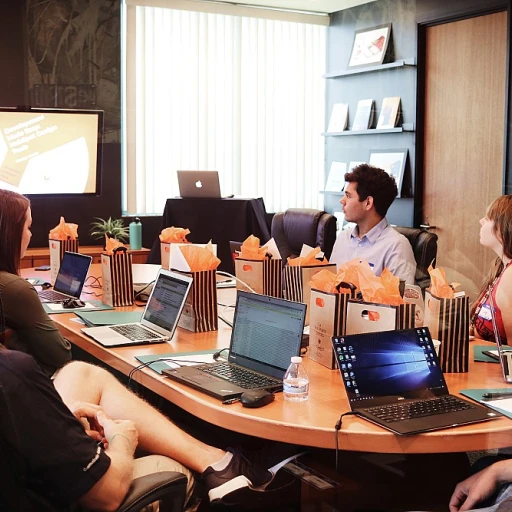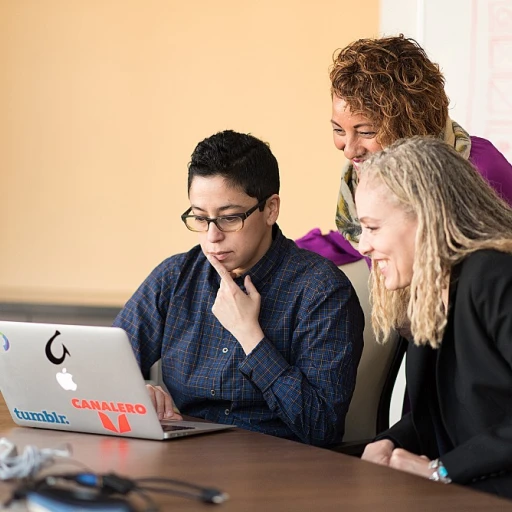
Understanding Talent Assessment
Unlocking the Power of Talent: Assessing Abilities and Potential
The focus on reskilling has gained significant momentum as companies strive to remain competitive. Central to this endeavor is the practice of talent assessment, a structured process designed to identify and evaluate the skills, cognitive abilities, and growth potential of candidates and team members. By assessing these elements, organizations can make informed decisions about hiring, talent management, and employee development. Talent assessments help organizations understand the strengths and weaknesses of their teams. These assessments range from skills tests and cognitive ability tests to more nuanced tools such as personality tests and situational judgment assessments. Each type of assessment provides different insights, contributing to a holistic understanding of an individual's abilities and potential contributions to the company. Data driven approaches have become increasingly important in the assessment process. This involves leveraging assessment tools and techniques that yield quantifiable data on candidates' performance and potential. An effective assessment framework is not only crucial during the hiring process but also for succession planning and ongoing employee development. By prioritizing talent assessments, companies can foster continuous growth and ensure alignment with their strategic goals. The insights gained from these assessments can also uncover hidden talents within existing team members, facilitating tailored development initiatives and optimizing the performance of the entire team. For those delving deeper into the principles and impact of talent assessment, the insights provided by experts like Kelly Palmer can be invaluable. Discover more about exploring the insights of Kelly Palmer on reskilling to enhance your understanding of this evolving landscape.The Role of Talent Assessment in Reskilling
Bridging Skill Gaps Through Evaluation
The integration of talent assessment into the reskilling framework is crucial in bridging skill gaps within a company. By leveraging various assessment tools, organizations can evaluate the existing skills and capabilities of their team members. This allows for a comprehensive understanding of the development areas necessary for each team member, aligning them with career aspirations and job requirements. A data-driven approach to talent assessment can effectively highlight areas for growth and improvement.
Identifying Growth Potential
The power of performance assessments, such as cognitive ability and situational judgment tests, lies in their capacity to reveal the hidden potential of employees. These assessments help tailor reskilling programs to enhance skills that are crucial for team and organizational success. For instance, cognitive ability tests can unveil critical thinking capabilities, while personality tests open avenues for personalized developmental paths, crucial for talent management.
Enhancing Success Through Strategic Use
It's not merely about understanding where each candidate stands, but also about forecasting future needs in line with succession planning. The success of a reskilling exercise often hinges on the strategic use of insightful assessment frameworks and how they are tailored to individual roles. Assessment processes that are well-structured contribute significantly to retaining highly potential employees and facilitating their growth. For additional perspectives into reskilling through talent insights, refer to the insights of Kelly Palmer.
Challenges in Talent Assessment for Reskilling
Pitfalls and Obstacles in the Assessment Landscape
Talent assessments play a critical role in identifying the skills, abilities, and growth potential of candidates and employees. However, the journey towards successful reskilling through talent assessments is fraught with challenges. Understanding these obstacles is vital for any company aiming to streamline its hiring and development processes effectively.
Identifying the Right Type of Assessment
One of the primary challenges is selecting the most suitable talent assessment tools. With so many types and variations available, such as cognitive ability tests, situational judgment tests, and personality tests, it can be difficult to pinpoint which will provide the most relevant data about a candidate or team member's skills and performance. Companies must ensure their assessment framework aligns with their specific organizational needs and goals.
Balancing Objectivity and Subjectivity
Another common hurdle is maintaining the balance between objective and subjective assessment methods. While data-driven approaches offer valuable insights, real human experiences and potential may not always be captured through quantitative metrics alone. Assessment processes need to blend both qualitative and quantitative elements to offer a comprehensive picture of a candidate’s capabilities and personality.
Scalability and Consistency
Scaling the assessment process while ensuring consistency poses a significant challenge, especially as team sizes increase. Different team members may administer assessments differently, leading to variable outcomes. Establishing a standard operating procedure and using consistent assessment tools across teams is essential to achieving reliable and comparable data.
Time Constraints and Resources
Talent assessments can be resource-intensive. The time taken to conduct assessments, evaluate performance, and provide feedback can extend hiring timeframes. Additionally, the resources needed to maintain a robust talent assessment system and train HR professionals are considerable. Companies must balance the need for thorough assessment with the practical limits of time and budget.
Sensitive to Change
The dynamic nature of skills required in the job market today can render some assessments outdated quickly. This requires constant updating of assessment criteria and tools, necessitating an agile talent management approach. Ensuring that assessment tools are future-focused and able to adapt to changing demands is crucial for maintaining workforce agility.
Tools and Techniques for Effective Talent Assessment
Exploring the Methods in Talent Assessment
In the quest to effectively harness talent and facilitate seamless reskilling, employing a robust assessment framework remains pivotal. This process involves identifying the right mix of assessment tools that cater to various facets of performance, potential, and growth potential. Companies show increasing preference for methods that are data driven, providing insights into both strengths and areas for development among candidates and current team members. Understanding the types of talent used in assessment tests is crucial. Skills tests, for instance, evaluate a candidate's concrete capabilities necessary for specific job roles. Meanwhile, cognitive ability tests give insight into problem-solving skills and learning speed, which are highly beneficial in understanding how well a candidate or employee can adapt to new roles as part of their growth journey.Personality and Situational Judgment in Assessments
When considering personality tests, these assessments help gauge work preferences and interpersonal skills, thereby enriching the hiring process. These insights are invaluable in ensuring team members align with company culture and can thrive within the team dynamic. Moreover, situational judgment tests present hypothetical scenarios that require problem resolution. These tests help assess a candidate’s decision-making skills and potential performance in job-specific situations. They are instrumental in identifying the right candidates for reskilling, aligning employees' capabilities with company needs and succession planning. By integrating these tools into a comprehensive assessment process, organizations can not only streamline their hiring process but also enable effective talent management. As companies aim for a structured development process, these assessments help chart out employees’ growth paths and strategic placement in roles where they can excel. This targeted approach increases the likelihood of successful reskilling efforts, ensuring a future-ready workforce.Case Studies: Successful Reskilling Through Talent Assessment
Real-World Success Stories in Reskilling
In the ever-evolving landscape of talent management, companies are increasingly turning to talent assessments to unlock the growth potential of their employees. By leveraging data-driven assessment tools, organizations can identify the skills and cognitive abilities of their team members, paving the way for effective reskilling initiatives. Here, we explore some real-world examples where talent assessments have played a pivotal role in successful reskilling efforts.
Case Study 1: Tech Company Boosts Employee Performance
A leading tech company faced challenges in keeping up with rapid technological advancements. To address this, they implemented a comprehensive talent assessment framework that included skills tests and cognitive ability assessments. By identifying the strengths and weaknesses of their employees, the company was able to tailor development programs that enhanced the skills of their team members. This approach not only improved individual performance but also contributed to the overall growth of the company.
Case Study 2: Retail Giant Enhances Customer Experience
In the retail sector, a major player sought to improve customer service by reskilling their workforce. Through situational judgment and personality tests, they assessed the potential of their employees to adapt to new roles. The insights gained from these assessments helped the company design targeted training programs that equipped employees with the necessary skills to excel in customer-facing roles. As a result, the company saw a significant improvement in customer satisfaction and employee engagement.
Case Study 3: Financial Institution Streamlines Hiring Process
A financial institution aimed to streamline its hiring process and ensure that new hires had the potential for long-term growth within the company. By incorporating various types of talent assessments, including ability tests and personality assessments, they were able to identify candidates who not only fit the job requirements but also had the potential for succession planning. This strategic approach to hiring and development has led to a more cohesive and high-performing team.
These case studies highlight the transformative impact of talent assessments in reskilling initiatives. By understanding the unique capabilities and potential of their employees, companies can create a more agile and adaptable workforce, ready to meet the challenges of tomorrow.
Future Trends in Talent Assessment and Reskilling
Navigating Evolving Talent Dynamics
In today’s fast-paced job landscape, the role of talent assessment is transforming, shaping how companies identify and leverage skills. As organizations focus on agility, understanding candidates’ potential is vital for talent management. Such understanding informs not only hiring decisions but also aids in aligning roles with team growth potential.
Integration of Technology in Assessments
The integration of advanced technologies in assessment tools paves the way for more data-driven outcomes. Leveraging AI, for instance, can enhance the precision of cognitive ability tests and situational judgment assessments. By utilizing technology, a company can better predict employees’ performance in varied roles, ensuring that the right people are in the right places at the right time.
Adaptability and Skill Diversity
Another emerging trend is the focus on adaptability and skill diversification. Organizations are valuing team members who demonstrate versatility, which reshapes the assessment process. This trend drives a shift towards personality tests and remote skills tests that explore development potential across various domains. Such comprehensive understanding aids in a robust succession planning strategy.
Continuous Improvement and Feedback Loops
Continuous improvement is at the heart of successful reskilling programs. Regular performance reviews and feedback loops within the assessment framework foster an environment of ongoing growth. By implementing periodic assessment tests, companies can track progress and make necessary adjustments, enhancing the reskilling trajectory.
Strategic Collaboration
Effective reskilling is not an isolated process. It involves strategic collaboration within and across departments, integrating various types of talent assessments to support holistic talent development. As we move forward, cross-functional collaboration will play an increasing role in the hiring process, elevating overall organizational effectiveness.













